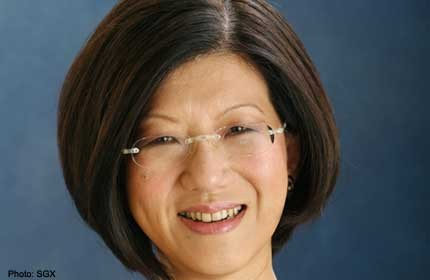SGX to report daily short-selling volumes

SINGAPORE - The Singapore Exchange (SGX) will report daily short sales volumes for every counter beginning in March as it aggressively pursues leadership status in the field of risk management and transparency, the bourse announced on Tuesday.
In short-selling, traders borrow shares and sell them in the hope of buying them back cheaper in the future, thus profiting from a drop in the share price. With the rule, traders will have to tag as a short sale any trade in which the seller does not own the shares. SGX said it will publish daily reports on the total value and volume of short sales for each counter.
The change comes two- and-a-half years after SGX first issued a public consultation on the topic. In its consultation paper from July 2010, SGX noted that the increased transparency could serve two purposes.
"First, the information may assist with pricing efficiency by serving as input for investors in their investment decisions," SGX wrote at that time.
"Second, the information disclosed may serve an evidentiary purpose for regulators of any abusive short-selling activities."
Market stakeholders welcomed the change.
"If somebody has been shorting, you can know - is it a one-off thing or a continuous thing? It would be a signal or a sign of something to be wary of," said Albert Fong, president of the Society of Remisiers.
David Gerald, president of the Securities Investors Association of Singapore, pointed to the recent case of Olam International. In that case, hedge fund Muddy Waters shorted the stock before revealing its misgivings about the commodity trader's finances, causing a sharp drop in the counter that hurt many retail investors, Mr Gerald said.
"It will help the investors and traders if they know the volumes of short- selling, because retail investors are often the ones left holding the baby," Mr Gerald said.
"Very often, the hedge funds would have shorted, then the newspapers would have reported it, and the retail investors tend to sell at a loss."
The reporting of shorts is the latest bullet fired by SGX as it aims to be a leading exchange and clearing- house operation when it comes to risk management.
SGX is also planning to increase transparency in its clearing houses, such as providing aggregate data about the clearing houses' exposure to members, to help participants manage their risk better.
Along with a host of regulatory changes made over the past year, SGX said it expects its two clearing houses - Singapore Exchange Derivatives Clearing and Central Depository - to be among the earliest in the world to comply with the new global principles laid out by the International Organisation of Securities Commissions and Committee on Payment and Settlement Systems. Those international organisations had targeted end-2012 for compliance among member groups, but many clearing houses have yet to reach full compliance.
"In meeting the latest global regulatory requirements, we assure our customers that they can continue to efficiently expand their businesses and confidently manage their risks via SGX," SGX chief executive Magnus Bocker said in a statement.
"Our standing as the clearing house and exchange of choice in Asia is further validated and made more secure."
Yeo Lian Sim, SGX's chief regulatory and risk officer, said investors have placed greater emphasis on safety and risk management after the collapse of Lehman Brothers and MF Global over the past few years.
"Having that confidence in where you do business is such a critical matter that it just underpins every other position," Ms Yeo said.
The benefits of a strong clearing house are not just qualitative.
"We are a qualifying central clearing party, which means that for banks and affiliates who are members of SGX, who clear their trades through SGX, their exposure to our clearing fund will require capital provision of only less than one per cent," Ms Yeo said. "If we were not a qualifying clearing house, it could be anywhere up to as high as 100 per cent."
Get The Business Times for more stories.